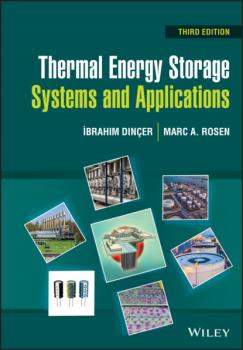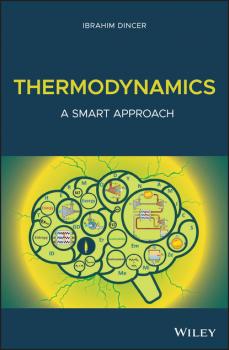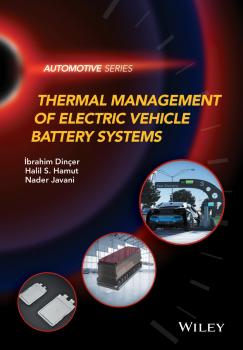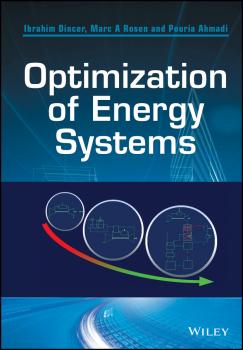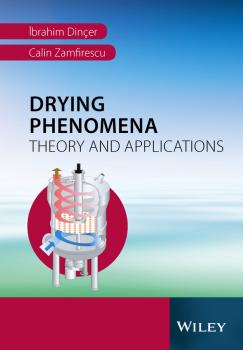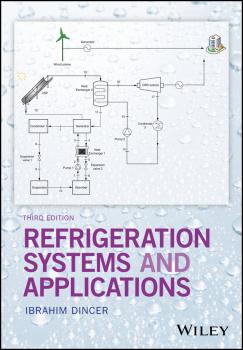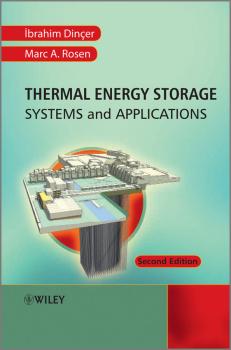Ibrahim Dincer
Список книг автора Ibrahim DincerThermal Energy Storage Systems and Applications
Thermal Energy Storage Systems and Applications Provides students and engineers with up-to-date information on methods, models, and approaches in thermal energy storage systems and their applications in thermal management and elsewhere Thermal energy storage (TES) systems have become a vital technology for renewable energy systems and are increasingly being used in commercial and industrial applications including space and water heating, cooling, and air conditioning. TES technology has the potential to be a sustainable, cost-effective, and eco-friendly approach for facilitating more effective use of thermal equipment and correcting the imbalance that can occur between the supply and demand of energy. The Third Edition of Thermal Energy Storage: Systems and Applications contains detailed coverage of new methodologies, models, experimental works, and methods in the rapidly growing field. Extensively revised and updated throughout, this comprehensive volume covers integrated systems with energy storage options, environmental impact and sustainability, design, analysis, assessment criteria, advanced tools in exergy and extended exergy, and more. New and expanded chapters address topics such as renewable energy systems in which thermal energy storage is essential, sensible and latent TES systems, and numerical modelling, simulation, and analysis of TES systems. Integrating academic research and practical information, this new edition: Discusses a variety of practical TES applications, their technical features, and potential benefits Explores recent developments and future directions in energy storage technologiesCovers the latest generation of thermal storage systems and a wide range of applications Features new chapters, case studies, and chapter problems throughout the textIncludes pertinent background information on thermodynamics, fluid flow, and heat transferContains numerous illustrative examples, full references, and appendices with conversion factors and thermophysical properties of various materials Thermal Energy Storage: Systems and Applications, Third Edition is the perfect textbook for advanced undergraduate and graduate courses in mechanical, chemical, and electrical engineering, and a highly useful reference for energy engineers and researchers.
Thermal Management of Electric Vehicle Battery Systems
Thermal Management of Electric Vehicle Battery Systems provides a thorough examination of various conventional and cutting edge electric vehicle (EV) battery thermal management systems (including phase change material) that are currently used in the industry as well as being proposed for future EV batteries. It covers how to select the right thermal management design, configuration and parameters for the users’ battery chemistry, applications and operating conditions, and provides guidance on the setup, instrumentation and operation of their thermal management systems (TMS) in the most efficient and effective manner. This book provides the reader with the necessary information to develop a capable battery TMS that can keep the cells operating within the ideal operating temperature ranges and uniformities, while minimizing the associated energy consumption, cost and environmental impact. The procedures used are explained step-by-step, and generic and widely used parameters are utilized as much as possible to enable the reader to incorporate the conducted analyses to the systems they are working on. Also included are comprehensive thermodynamic modelling and analyses of TMSs as well as databanks of component costs and environmental impacts, which can be useful for providing new ideas on improving vehicle designs. Key features: Discusses traditional and cutting edge technologies as well as research directions Covers thermal management systems and their selection for different vehicles and applications Includes case studies and practical examples from the industry Covers thermodynamic analyses and assessment methods, including those based on energy and exergy, as well as exergoeconomic, exergoenvironmental and enviroeconomic techniques Accompanied by a website hosting codes, models, and economic and environmental databases as well as various related information Thermal Management of Electric Vehicle Battery Systems is a unique book on electric vehicle thermal management systems for researchers and practitioners in industry, and is also a suitable textbook for senior-level undergraduate and graduate courses.
Optimization of Energy Systems
An essential resource for optimizing energy systems to enhance design capability, performance and sustainability Optimization of Energy Systems comprehensively describes the thermodynamic modelling, analysis and optimization of numerous types of energy systems in various applications. It provides a new understanding of the system and the process of defining proper objective functions for determination of the most suitable design parameters for achieving enhanced efficiency, cost effectiveness and sustainability. Beginning with a general summary of thermodynamics, optimization techniques and optimization methods for thermal components, the book goes on to describe how to determine the most appropriate design parameters for more complex energy systems using various optimization methods. The results of each chapter provide potential tools for design, analysis, performance improvement, and greenhouse gas emissions reduction. Key features: Comprehensive coverage of the modelling, analysis and optimization of many energy systems for a variety of applications. Examples, practical applications and case studies to put theory into practice. Study problems at the end of each chapter that foster critical thinking and skill development. Written in an easy-to-follow style, starting with simple systems and moving to advanced energy systems and their complexities. A unique resource for understanding cutting-edge research in the thermodynamic analysis and optimization of a wide range of energy systems, Optimization of Energy Systems is suitable for graduate and senior undergraduate students, researchers, engineers, practitioners, and scientists in the area of energy systems.
Drying Phenomena. Theory and Applications
Comprehensively covers conventional and novel drying systems and applications, while keeping a focus on the fundamentals of drying phenomena. Presents detailed thermodynamic and heat/mass transfer analyses in a reader-friendly and easy-to-follow approach Includes case studies, illustrative examples and problems Presents experimental and computational approaches Includes comprehensive information identifying the roles of flow and heat transfer mechanisms on the drying phenomena Considers industrial applications, corresponding criterion, complications, prospects, etc. Discusses novel drying technologies, the corresponding research platforms and potential solutions
Refrigeration Systems and Applications
The definitive text/reference for students, researchers and practicing engineers This book provides comprehensive coverage on refrigeration systems and applications, ranging from the fundamental principles of thermodynamics to food cooling applications for a wide range of sectoral utilizations. Energy and exergy analyses as well as performance assessments through energy and exergy efficiencies and energetic and exergetic coefficients of performance are explored, and numerous analysis techniques, models, correlations and procedures are introduced with examples and case studies. There are specific sections allocated to environmental impact assessment and sustainable development studies. Also featured are discussions of important recent developments in the field, including those stemming from the author’s pioneering research. Refrigeration is a uniquely positioned multi-disciplinary field encompassing mechanical, chemical, industrial and food engineering, as well as chemistry. Its wide-ranging applications mean that the industry plays a key role in national and international economies. And it continues to be an area of active research, much of it focusing on making the technology as environmentally friendly and sustainable as possible without compromising cost efficiency and effectiveness. This substantially updated and revised edition of the classic text/reference now features two new chapters devoted to renewable-energy-based integrated refrigeration systems and environmental impact/sustainability assessment. All examples and chapter-end problems have been updated as have conversion factors and the thermophysical properties of an array of materials. Provides a solid foundation in the fundamental principles and the practical applications of refrigeration technologies Examines fundamental aspects of thermodynamics, refrigerants, as well as energy and exergy analyses and energy and exergy based performance assessment criteria and approaches Introduces environmental impact assessment methods and sustainability evaluation of refrigeration systems and applications Covers basic and advanced (and hence integrated) refrigeration cycles and systems, as well as a range of novel applications Discusses crucial industrial, technical and operational problems, as well as new performance improvement techniques and tools for better design and analysis Features clear explanations, numerous chapter-end problems and worked-out examples Refrigeration Systems and Applications, Third Edition is an indispensable working resource for researchers and practitioners in the areas of Refrigeration and Air Conditioning. It is also an ideal textbook for graduate and senior undergraduate students in mechanical, chemical, biochemical, industrial and food engineering disciplines.
Thermal Energy Storage. Systems and Applications
The ability of thermal energy storage (TES) systems to facilitate energy savings, renewable energy use and reduce environmental impact has led to a recent resurgence in their interest. The second edition of this book offers up-to-date coverage of recent energy efficient and sustainable technological methods and solutions, covering analysis, design and performance improvement as well as life-cycle costing and assessment. As well as having significantly revised the book for use as a graduate text, the authors address real-life technical and operational problems, enabling the reader to gain an understanding of the fundamental principles and practical applications of thermal energy storage technology. Beginning with a general summary of thermodynamics, fluid mechanics and heat transfer, this book goes on to discuss practical applications with chapters that include TES systems, environmental impact, energy savings, energy and exergy analyses, numerical modeling and simulation, case studies and new techniques and performance assessment methods.
